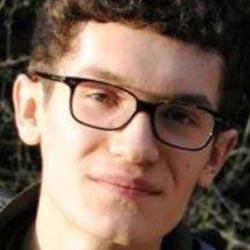After considering various options we decided we wanted to arrange shared parental leave, with each of us taking 4 months leave from work: the first two months together, then for me to return to work for two months whilst Milja stayed on leave, before switching over. Milja is Dutch and we wanted to be back with her family for the birth, which added an additional layer of complexity – we had to arrange travel to and from The Netherlands, as well as switching into the Dutch healthcare/administrative system.
The intermission process was very clear and couldn’t have gone more smoothly. I had very positive meetings with my PhD supervisor (Prof. Ian Henderson) and the then chair of the GEC committee (Prof. Uta Paszkowski) to discuss my changing circumstances – both were excited for me, shared their own experiences, and gave me sound advice. My supervisor also has young children, so could understand the challenges ahead and offered great advice about how to compartmentalise research and family life. We also arranged additional meetings to plan how I would coordinate my experiments around two periods of parental leave.
My funding body, The Gatsby Charitable Trust, could not have been more supportive. I met with one of the Advisors (Prof. Jane Langdale) to share my news in person and discuss my plan for shared parental leave. Gatsby were very helpful with this and arranged to fund my four months leave, which made a massive difference to my financial situation. Although my PhD contract did not include shared parental leave (only paternity and maternity leave) this was not a concern and Gatsby emailed an updated contract to all PhD students to include this option.
(I want to note that I never experienced a single negative attitude to my taking parental leave, at any level – not that the opposite was to be expected.)
When both my partner and I returned to work (myself full-time and Milja part-time) we arranged a nursery place for two days a week at my College’s nursery (Gonville & Caius College). The College were very helpful with facilitating this and also provided financial support. I also applied to The University Childcare Support Fund and was fortunate to receive additional support with nursery costs. My parents live nearby and happily provide a further day of childcare per week.
There have of course been challenges to face throughout the last year. Winding my research project down and back up twice was not trivial, especially when trying to coordinate this with plant generations. Having a baby arrive in our lives meant a lot more had to happen every day, despite getting considerably less sleep. It also created an additional administrative burden, and endless decision making about large and small things. As my PhD is experiment heavy it requires long hours in the lab, and it’s been challenging to juggle commitments and make sure all three people are happy with the situation. This has not always been straightforward and has involved regular discussion, compromise and experimentation in this arena too!
If I may offer some advice: a regular schedule is essential, and avoids otherwise continual decision making and planning. Although, after having a baby, you spend a large amount of time together and share so many experiences, your responses to those may differ greatly. In the bustle of life it’s hard to find time to reflect and easy to lose track of the other person’s state-of-mind. Taking the time (of which there is a scarcity) to share your feelings with your partner saves difficulties and frustrations down the line.
Besides the obvious pleasure of bringing a person into the world and seeing that person grow in every sense, having a baby during my PhD has brought several advantages. It’s forced me to be more focused at work, to better prioritise my experiments and to plan to a greater extent. Furthermore, having to leave the lab also gives more opportunity to spend time thinking rather than doing, which has led to better decision making and more ideas. Another consequence is that having more restricted working hours means I can look forward to getting back to my research. And when experiments don’t work out I have an additional project to distract myself with and be proud of.
After submitting my thesis early next year, we will move to The Netherlands – where my partner will begin her PhD and I plan to begin a postdoc. Our reason for moving to The Netherlands is based on the additional support we will receive from Milja’s family, the great childcare support and educational/social environment in the country, the opportunity for me of applying for permanent residency (leading to dual Dutch-British citizenship) prior to Brexit, as well as the great science.
Finally, I’d like to encourage all fathers to take at least a few months of leave around the birth of their children – I’m very glad I did and I’m thankful I had the support to do it!

